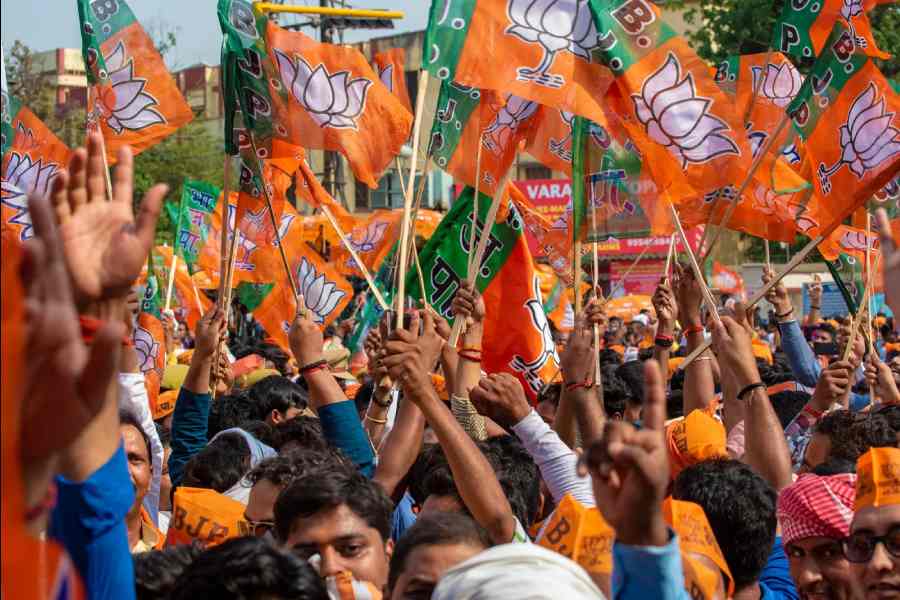In May last year, at a Sydney arena teeming with members of the Indian diaspora, the Australian prime minister, Anthony Albanese, introduced Narendra Modi as “the Boss” — a reference to the iconic American musician, Bruce Springsteen, who had performed there some time ago. The Indian prime minister — or at least the team that organises his diaspora outreach events — doesn’t know much about Springsteen. We know this because in 2014, during Modi’s mega extravaganza for his Indian fans in New York City, the background score included Springsteen’s “Born in the USA” — a chest-thumping number that is actually a searing criticism of the United States of America, a country Modi was trying to woo.
But Albanese, who attended the Springsteen concert, knows better. While it is tempting to attribute his rockstar ode to Modi to an attempt at currying favour with the Indian diaspora, deeper reasons likely shaped that praise. For a decade now, Modi has so completely dominated Indian politics that leaders of all nations that want to do business with India have felt compelled to pander to the prime minister in their own ways. Some, like the US president, Joe Biden, have referred to his popularity ratings; many others — from France to Fiji and Bhutan to Bahrain — have lavished state awards and honours on Modi, adorning him with sashes and medallions.
The clear majority that the Bharatiya Janata Party enjoyed in Parliament gave the prime minister and his team a strong hand in negotiations with foreign counterparts. And if massaging Modi’s ego helped them, world leaders were willing to do it. They knew that if they had Modi on board, they had India on board.
That equation has now changed. The Lok Sabha election results have reshaped not only the landscape of India’s domestic politics but also how the rest of the world will look at Modi. He is still prime minister and, according to most polls, personally very popular with large sections of Indians. But he no longer enjoys the aura of invincibility that he previously did. Other governments know that Modi, like every other democratically elected world leader, can be voted out of power and that his administration’s popularity, too, is fleeting. They will treat Modi accordingly. He will still be fêted as the leader of the world’s largest democracy, but other governments know that potentially controversial foreign policy deals, which could attract domestic criticism in India — from trade pacts to strategic shifts — will be harder for Modi to pull off.
The margin of electoral support that the BJP can risk losing has shrunk. Much like an ageing rockstar who can no longer light up the stage solo and needs his bandmates to step up, Modi will need to carry his coalition allies with him on major foreign policy decisions in order to keep his government afloat. These are untested waters for Modi, who has never had to lead either India, or previously Gujarat, without a comfortable majority. How his government tackles this new reality will shape India’s foreign policy under Modi 3.0.
Modi can look for inspiration from former prime ministers with similarly unclear mandates who nonetheless took bold foreign policy positions. As the Cold War wound down and the Soviet Union broke up, P.V. Narasimha Rao’s minority government deftly pivoted to warmer ties with the US. Atal Bihari Vajpayee’s coalition government attempted risky — and ultimately unsuccessful — peace talks with Pakistan. And Manmohan Singh famously dared his communist partners to withdraw support from his wobbly government as he went ahead and inked the India-US nuclear deal. But there’s one big difference between those times and 2024. Unlike Modi, Rao, Vajpayee and Singh never had a majority to start with. They weren’t weaker than they had been.
There is one thing that Modi can do: familiarise himself with some of Springsteen’s most poignant lyrics — “... well time slips away/ And leaves you with nothing mister but/ Boring stories of// Glory days, yeah they’ll pass you by.” June 4 showed that glory days are slowly passing Modi by, and the world sees it.
Charu Sudan Kasturi is a senior journalist who writes on foreign policy and international relations










